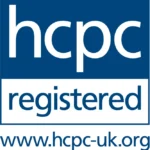Empowering Women To Be Strong
Returning to Fitness After Pregnancy: A Postnatal Physiotherapist’s Guide
Bringing a new life into the world is an incredible journey, but it can also leave many women feeling disconnected from their bodies. As a pelvic health physiotherapist in Newport, Cardiff, and South Wales, I specialises in helping postnatal women regain confidence, strength, and function as they return to fitness.
Whether you’re dealing with pelvic floor dysfunction, diastasis recti, or simply want a safe and effective way to rebuild your fitness routine, this guide is here to support you.
Learn More
Understanding Your Postnatal Body Pregnancy and childbirth cause significant changes to the body, especially to the pelvic floor muscles and core. Common challenges postnatal women face include:- Pelvic floor weakness: This can lead to urinary incontinence or a feeling of heaviness.- Diastasis recti: A separation of the abdominal muscles that affects core strength and stability.-General fatigue and reduced strength: Often due to sleepless nights and hormonal shifts. It’s important to approach postnatal fitness with patience and guidance to prevent injuries and rebuild a strong foundation. When to Start Postnatal Fitness Every woman’s recovery timeline is unique. While some feel ready to exercise soon after birth, others may take longer. A good rule of thumb:- Vaginal Delivery: Wait at least 6 weeks and get clearance from your healthcare provider.- C-Section: Allow at least 6 weeks for initial healing and seek guidance from a postnatal physiotherapist. Safe Exercises for Postnatal Women As a physiotherapist and personal trainer for postnatal women in Cardiff and Newport, I recommend starting with gentle, low-impact exercises to rebuild strength. 1. Pelvic Floor Exercises- Begin with basic Kegels to restore strength and control.- Avoid holding your breath—use slow, controlled movements. 2. Core Activation- Start with deep abdominal breathing exercises.- Progress to gentle core movements that avoid excessive pressure on the abdomen (e.g., heel slides, bridges). 3. Walking- Walking is a great way to reintroduce cardio without overloading your body. 4. Low-Impact Fitness Classes- Join postnatal fitness classes in Cardiff or Newport for expert guidance and support from others in the same stage of recovery. When to Seek Professional Support If you’re experiencing symptoms like:- Urinary incontinence- Pelvic pain or heaviness- Persistent diastasis recti- Pain during movement or exercise …it’s time to consult a pelvic health physiotherapist. With targeted rehabilitation, you can address these issues and build a strong, functional foundation for fitness. Returning to High-Impact Exercise If you’re eager to get back to running, weightlifting, or other high-impact activities, it’s essential to prepare your body. Working with a specialised postnatal personal trainer in Newport or Cardiff can help you safely transition back to your favourite workouts. I always encourage postnatal women to focus on building strength, stability, and endurance before jumping into high-intensity routines. Remember, your body has been through a lot—give it the time it needs to heal. Why Work with a Specialist in Postnatal Fitness? As a pelvic health physiotherapist and fitness expert serving South Wales, I understand the unique needs of postnatal women. My programs are designed to:- Support pelvic floor rehabilitation.- Address diastasis recti with safe core-strengthening exercises.- Provide personalised fitness plans tailored to your goals and recovery timeline. Ready to Reclaim Your Strength? If you’re a new mom in Newport, Cardiff, or South Wales looking to safely return to fitness, I’m here to help. Whether you join a postnatal fitness class, book a one-on-one physiotherapy session, or sign up for personal training, I’ll guide you every step of the way. Let’s work together to rebuild your strength, confidence, and connection with your body. Contact me today to start your journey!

